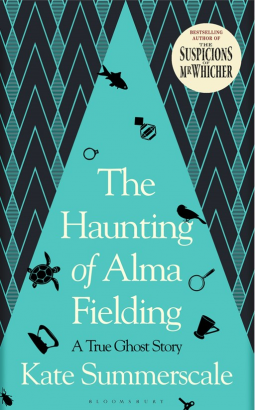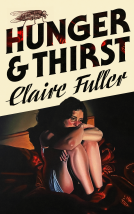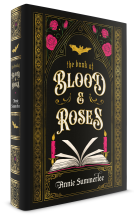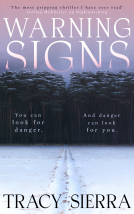
The Haunting of Alma Fielding
A True Ghost Story
by Kate Summerscale
This title was previously available on NetGalley and is now archived.
Send NetGalley books directly to your Kindle or Kindle app
1
To read on a Kindle or Kindle app, please add kindle@netgalley.com as an approved email address to receive files in your Amazon account. Click here for step-by-step instructions.
2
Also find your Kindle email address within your Amazon account, and enter it here.
Pub Date Oct 01 2020 | Archive Date Oct 31 2020
Talking about this book? Use #TheHauntingofAlmaFielding #NetGalley. More hashtag tips!
Description
The extraordinary story of a 1930s ghost hunt, and the woman who confounded the world, from the bestselling, award-winning author of The Suspicions of Mr Whicher
London, 1938. In the suburbs of the city, an ordinary young housewife has become the eye in a storm of chaos. In Alma Fielding's modest home, china flies off the shelves, eggs fly through the air; stolen jewellery appears on her fingers, white mice crawl out of her handbag, beetles appear from under her gloves; in the middle of a car journey, a terrapin materialises on her lap.
Nandor Fodor – a Jewish-Hungarian refugee and chief ghost hunter for the International Institute for Psychical Research – reads of the case, and hastens to the scene of the haunting.
But when Fodor starts his scrupulous investigation, he discovers that the case is even stranger than it seems. By unravelling Alma’s peculiar history, he finds a different and darker type of haunting: trauma, alienation, loss – and the foreshadowing of a nation’s worst fears. As the spectre of Fascism lengthens over Europe, and as Fodor's obsession with the case deepens, Alma becomes ever more disturbed.
With rigour, daring and insight, the award-winning pioneer of non-fiction writing Kate Summerscale shadows Fodor’s enquiry, delving into long-hidden archives to find the human story behind a very modern haunting.
Advance Praise
'A page-turner with the authority of history' PHILIPPA GREGORY
'As gripping as a novel. An engaging, unsettling, deeply satisfying read' SARAH WATERS
'An empathetic, meticulous account of a spiritual unravelling; a tribute to the astonishing power of the human mind - but also a properly absorbing, baffling, satisfying detective story' AIDA EDEMARIAM
Available Editions
| EDITION | Hardcover |
| ISBN | 9781408895450 |
| PRICE | £18.99 (GBP) |
Average rating from 47 members
Featured Reviews
Thank you to Netgalley and Bloomsbury Publishing Plc (UK & ANZ) for the arc of The Haunting of Alma Fielding by Kate Summerscale.
This is set within London in the year 1938. Within the suburbs of London there is a young housewife who has chaos around her..., In Alma's home, china ends up flying off shelves to eggs flying through thin air to stolen jewelry appearing upon on her fingers to white mice crawling out of her own handbag itself and even, beetles appearing from under her own gloves... and much more.....
Fodor is a guy who ends up starting to investigate as he is a ghost and spirit hunter... he ends up discovering in that the case is even stranger than it actually is . By him going over Alma’s history and as it unravels he ends up discovering something much much than just a haunting this includes types of trauma, alienation and even losses Fodor's obsession with the case deepens and widens, Alma becomes ever more disturbed than ever....
This was such an interesting and new type of book for me about a true ghost story if you loved the Suspicions of Mr Whicher by Kate you will love this.
definitely recommend
4 stars⭐⭐⭐⭐
 Aine T, Media/Journalist
Aine T, Media/Journalist
Perfectly timed in terms of publication, October is the month of spookiness and being scared by Halloween, this details a 1930s ghost hunt – with a difference. Reading every bit as gripping as a novel, Kate – whose Suspicions of Mr Whicher I gobbled up – has written a compelling and intriguing read. Alma Fielding is experiencing inexplicable events at her London home. She meets Nandor Fodor, ghost hunter who wants to give explanation to what’s happening. By investigating he discovers something far darker and much scarier on a human level (I won’t spoil it for you). Kate’s skill of research is without question, as to is her ability to craft a non fictional tale that reads as beautifully and lyrically as fiction.
‘The Haunting of Alma Fielding’ is a fascinating, meticulously researched, true life story of an alleged poltergeist phenomenon in the 1930s. Summerscale writes of a bygone age, the brief lull between two devastating world wars, a time when the world was on the cusp of irrevocable change.
Alma Fielding was an ordinary housewife and mother, but when she began to experience terrifying poltergeist activity in her home, a ghost hunter was called in to try and make sense of the situation.
What follows is an intimate, thrilling, unnerving account of one woman’s ‘haunting’. Summerscale deftly leads the reader through the tawdry world of spiritualism, full of frauds and trickery, into a deeper, darker truth, where eerie, sometimes inexplicable, often bizarre events gradually reveal themselves to be something more ‘super-normal’ than anyone realised.
I found Summerscale’s book intriguing, unsettling, but above all thought-provoking. It’s definitely a book to read in the bright, reassuring light of day...
Thank you to Bloomsbury and Netgalley for the ARC.
This was so much better than I expected! That 'true ghost story' in the subtitle had slightly put me off but actually Summerscale uses this story of poltergeists (or are they?) and a 'ghost hunter' to ask probing questions about suffering, trauma and the supernatural.
Moving away from her Victorian period, this is set in the 1930s, that crucial between-the-wars period when there was a huge interest in spiritualism and the occult, partly as a result of the national trauma of WW1.
There are places where Summerscale is too meticulous in documenting every seance and encounter: it's important that her research should trace each event, but it's not necessary that she should recount each one in what is a crossover title.
That aside, this is a fascinating investigation that gives a historicised context for phenomena, activities and practices that are far deeper than might first appear.
To my mind, Kate Summerscale is one of our most fascinating, and most thorough, researchers. Her topics are always fantastically readable and go to places where other writers do not. I've enjoyed all of her books.
This one is another fascinating premise - in 1938, Alma Fielding, a south London housewife, begins to manifest poltergeist activity in her home. Objects fly through the air, wardrobes tumble over and her relations are baffled.
News of her abilities catches the eye of Nandor Fodor – a Jewish-Hungarian refugee and chief ghost hunter for the International Institute for Psychical research. Fodor commences a full investigation into Alma and her manifestations, with often shocking results.
But is she all she seems?
For the most part, the book is enjoyable. Again, the research is top notch. But one had a feeling towards the end of the book that the story gets tired. Everything is tied up well enough, but I very much felt like a 'big reveal' never happened.
I would encourage readers to pick this book up - especially those interested in supernatural matters. It's carefully researched and nicely paced, and I loved the little historical snippets weaved into the narrative. They very much give a sense of time and place. Alma was a troubled lady in troubled times. And I'm sure many of us in the current environment can relate to that.
The Haunting of Alma Fielding: A True Ghost Story by Kate Summerscale will be in good bookstores from October 2020.
 siobhan s, Reviewer
siobhan s, Reviewer
This was a really interesting read, the story about Alma Fielding and Nandor Fodor, the ghost hunter. It was hard to know what was true or wasn't in Alma's unravelling but Fodor's observations were truly interesting. His thoughts on the link between paranormal activity and repressed feelings due to trauma, frequently in childhood were quite radical for the 1930s. It's a story that stays with you long after finishing the book.
A great book to read for Halloween!
NetGalley very kindly sent me this book in exchange for an honest review.
#TheHauntingofAlmaFielding #NetGalley
When Alma Fielding starts to experience supernatural activity in her home in 1930s London, Nandor Fodor begins to investigate.
I've been meaning to read Kate Summerscale's books for so long. The supernatural idea behind The Haunting of Alma Fielding put it to the top of my list and I'm glad that it did!
Brilliantly researched, Kate Summerscale's latest book takes you back to London in 1938. I loved hearing about 'Woollies' and the backdrop of the events of the time (the rise of Fascism and impending Second World War) provided an interesting setting.
At first I felt sorry for Alma, who comes across as a weak character being plagued by a poltergeist, but my opinion gradually changed as Fodor's did. Fodor's account is very interesting and I particularly enjoyed the mentions of other cases he'd worked on and their similarities, along with the people who he had debunked.
The only downside to the book was that the case was never really solved, but of course that is no fault of the author's!
I'll definitely be recommending The Haunting of Alma Fielding where I can. It's the perfect read for the lead up to Halloween too.
Many thanks for the chance to read this title in exchange for an honest review!
 Hilary W, Reviewer
Hilary W, Reviewer
In this deeply probing historical book by Summerscale we are introduced to Alma Fielding, who in 1938 is a 34 year old married woman from south London with a son of 17. He works with his father in the small family business and all live in their respectable house with the lodger, around the corner from Alma’s family. All seemingly normal. But in February 1938 newspapers will report that Alma is the centre of increasingly wild poltergeist activity. Summerscale will research this and present to the reader not just the basic facts, but the wider background of how this “story” will develop, outside responses to her actions, a cast of characters interested in psychic research and public awareness of, and interest in, psychic activity in the years between the World Wars, but particularly as with another war imminent, mass trauma is starting to re-manifest itself.
Alma very rapidly comes to the attention of a number of psychic” researchers”. She becomes subject to extensive investigation by Nandor Fodor who is the researcher for the International Institute of Psychic Research. He is both a man of his time, but also a paid employee of the Society and so is subject to the whims of the influential Committee Members. His research notes form the basis of much of what is known now to have happened. Alma will have to be “tested” to see if her experiences are genuine or a scam and whether they can be replicated at IIPR headquarters in front of witnesses. It becomes increasingly clear that some experiences are falsified, but others might be “true”. But poltergeist activity is not the only thing of psychic interest. Since WW1 there had been huge interest in mediums who could talk to the dead. Alma is “tested to see if she is a medium and gradually starts to develop this skill, with eventually a spirit guide and multiple personalities using her body.
If poltergeist activity is true then what trips it? Fodor comes to believe it is the result of repressed childhood (or other) trauma. Summerscale is able to point to the difficulties of Alma’s back life. Subjecting her to intense scrutiny and expecting her to “perform” was therefore risky to her well being, something that gradually came to be appreciated. Medium activity had become increasingly mainstream since the war and it was well documented in newspapers, novels, books film and plays of the period, so Alma could easily become aware of the expected tropes of such roles, behaviour – and indeed expectations. She became an increasingly consummate “performer” and attracted greater attention. But this attention effectively made it harder for Institute members to seriously review what was happening as they were drawn into collusion with her behaviour. Psychic activity increasingly high interest had developed a train of highly competitive people with self interest in both researching and presenting the phenomena.
With war about to be declared in September 1939, Fodor will already have been sacked and will need to emigrate to support himself. He will publish a text on Fielding, but not until 1956. His notes, held by the IIPR were passed to the Society of Psychical Research on the first organisation’ demise and there wrongly accessioned until Summerscale rediscovered them in 2017. She then analysed their behaviour in their turn, not all the participants can be seen in a positive light.
But Summerscale while presenting a broad social history book here of seemingly just 19 months, never forgets that Alma Fielding is a human being and an extraordinary one at that. She was able to step out of her poor educational background and class and impel the actions of a range of otherwise influential people. She was a consummate “player” in this respect, with wide imagination and no doubt charisma. Summerscale never forgets that she was a real woman though who had to lead a real life with difficulties and challenges – very much a creature of her times. Once again she has taken a seemingly “simple” press report and used it to speak to so much more, presenting a woman with compassion but showing the multiple complexities and impacts of human life.
Readers who liked this book also liked:
Silvia Moreno-Garcia
Historical Fiction, Literary Fiction, Sci Fi & Fantasy
We Are Bookish
Historical Fiction, Literary Fiction, Multicultural Interest
Dale L. Roberts
Business, Leadership, Finance, Nonfiction (Adult), Reference


















